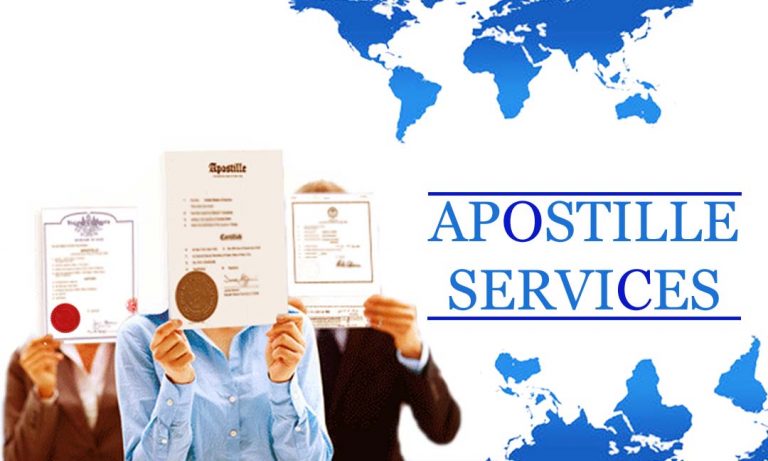Comprehending the Significance of Apostille Certification and Why It Is Necessary for Legal Records
Amongst the numerous systems available for this objective, apostille accreditation stands out as a streamlined and universally acknowledged technique. Comprehending the complexities and ramifications of apostille qualification on lawful records is necessary for individuals and companies engaging in cross-border tasks.
The Meaning of Apostille Accreditation
Apostille accreditation is a specific form of authentication that validates the legitimacy of a lawful document for international usage. This accreditation is critical for making certain that papers coming from one nation are acknowledged as valid in another, simplifying the procedure of cross-border deals, legal procedures, or personal issues like marriage or fostering. The Hague Apostille Convention of 1961 established the structure for this streamlined accreditation process among getting involved countries.
To obtain an apostille certification, the assigned authority in the record's country of origin have to verify the document's authenticity prior to affixing the apostille. Once connected, the apostille makes sure that the record will be approved as valid in any type of various other nation that is component of the Apostille Convention, without the demand for more certification.
Benefits of Apostille for Legal Papers
The utilization of apostille qualification enhances the worldwide recognition process for lawful papers, using significant advantages in helping with lawful rules and cross-border involvements. By attaching an apostille certification, the paper comes to be readily accepted in nations that are part of the Hague Apostille Convention, eliminating the demand for additional authentication.
Additionally, apostille accreditation enhances the general performance of lawful procedures by simplifying the process of confirming the legitimacy of a paper. Generally, the advantages of apostille certification for legal papers are crucial in advertising smoother international engagements and making sure conformity with lawful needs throughout boundaries.
Apostille Vs. Legalization: Trick Distinctions
When comparing the processes of apostille qualification and legalization for lawful files, it is important to comprehend the essential distinctions in their respective verification methods. An apostille is a simplified kind of legalization that is approved among countries that are component of the Hague Apostille Convention. The apostille process confirms the authenticity of the paper and the signature of the providing authority. It does not call for additional embassy or consular office legalisation, making it a more cost-efficient and simple approach for validating papers worldwide.
This process can be extra time-consuming and pricey compared to obtaining an apostille. The choice between apostille qualification and legalisation depends on the certain demands of the country where the paper will certainly be utilized.
Countries Approving Apostille Qualification

While the Hague Apostille Convention has actually substantially streamlined the procedure of cross-border file verification, there are still nations that are not event to the convention - Houston TX Apostille. As a result, papers predestined for these nations might need standard legalisation procedures with consulates or consular offices. It is vital for businesses and individuals dealing with worldwide deals to confirm the certain demands of the destination nation to guarantee conformity with their legal requirements
Actions to Obtain Apostille for Papers
To get an apostille for your files, you have to start by determining the ideal releasing authority in your country. The releasing authority is normally the federal government department in charge of authenticating papers, such as the Secretary of State's office. When you have recognized the correct authority, the following step is to ensure that your paper meets all the requirements for apostille qualification. These demands usually consist of having a signature from an acknowledged authorities, such as a notary public, and any necessary supporting records.
After verifying that your record satisfies the standards, you will need to submit an apostille application provided by the releasing authority. This type will certainly need details about the record being confirmed and the nation where it will certainly be made use of. In addition to the completed application, you will likely require to send the initial paper, a duplicate of your identification, and any applicable charges.

Final Thought
In verdict, apostille qualification check out here plays a crucial function in ensuring the authenticity and legitimacy of lawful documents for global usage (Houston TX Apostille). Understanding the value of apostille accreditation is important for individuals and companies browsing the complexities of cross-border deals and legal issues. By obtaining apostille certification, events can enhance the process of file verification and authentication, inevitably conserving time and resources in the global arena
To acquire an apostille qualification, the designated authority in the paper's nation of beginning need to confirm the file's authenticity before connecting the apostille. Once attached, the apostille makes certain that the paper will certainly be accepted as legitimate in any type of various other country that is part of the Apostille Convention, without the need for more certification.
By connecting an apostille certificate, the file becomes easily accepted in countries that are component of the Hague Apostille Convention, eliminating the requirement for more verification.Differentiating in between apostille qualification and legalisation discloses the differing acceptance of these authentication methods throughout different countries, with some nations specifically acknowledging and sticking to the apostille process. The apostille qualification is widely approved among nations that are component of the Hague Apostille Convention, which currently has 118 participant this contact form states.